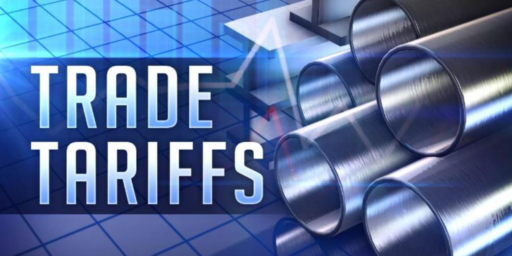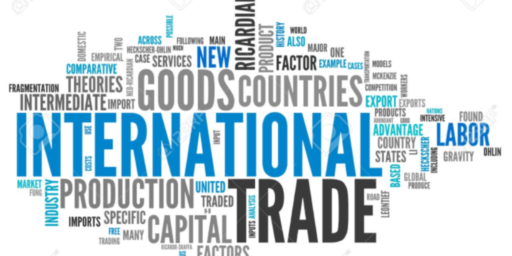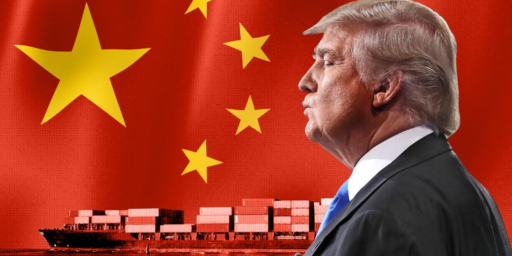Why Free Trade Is Significant
Max Sawicky discusses an economic concept that is “heretical to mainstream liberal economics”:
Free trade is an issue where better-off liberals and writers for publications that cater to them look down their noses at criticism of laissez-faire economics. For some reason, markets that straddle national borders are sacrosanct, while those that do not are fair game for modest regulation, such as the minimum wage, child labor, etc. Trade unionists who agitate for social clauses in trade agreements are called protectionists by people who now say the U.S. should pressure China to revalue its currency. EPI and CEPR are trade-bashing central.
Brad DeLong responds cogently:
[F]ree trade is a very important pie-growing mechanism — and, as a way of boosting growth in poor parts of the world, an important step toward a truly human world and a secure world.
Plus there are much better tools for repairing the income distribution than tariffs and quotas.[…]
Indeed. First, as previously noted, if high-income countries alone decide to liberalize, low-income countries gain $43.1 billion, according to one estimate. And, if low-income countries join in the liberalization, their benefits rise to $108.1 billion. That’s a step closer to a “truly human world.”
Second, assuming that there is a market failure and government intervention is deemed to be appropriate, the question becomes: what kind of policy will address the problem in the most precise way? Theoretically, you want an effective instrument that minimizes deadweight losses. Yet tariffs, quotas, and other such trade mechanisms distort on two margins, creating both inefficient production and inefficient consumption. By contrast, with something like a subsidy, you can at least restrict the distortion to one margin. As a former Clinton-administration economist taught me, don’t try to hit a bull’s-eye with a pitchfork. Trade instruments often represent pitchforks.*
Meanwhile, Matt Yglesias argues that some of these heated intellectual disputes are not “worth the energy.” He cites the OECD paper that Dan Drezner and I blogged the other day, then downplays the results. “[Y]ou’re talking pretty modest stuff,” Matt says, especially since much of the gains from free-market reforms arrive via regulatory overhauls, “not from changes in trade policy.”
But this argument seems to ignore the forms of trade policy that OECD analyzes. The authors examine mostly tariffs and other such barriers, which are “now rather small.” Trends in international trade, however, have gone (as it were) beyond border barriers to incorporate services liberalization and the like. If these issues are considered, I suspect that the passionate debates may become more understandable to Matt.
(*These basic ideas are no doubt familiar to Professor DeLong and Dr. Sawicky, but I lay them out anyway for some readers who may want elaboration.)



